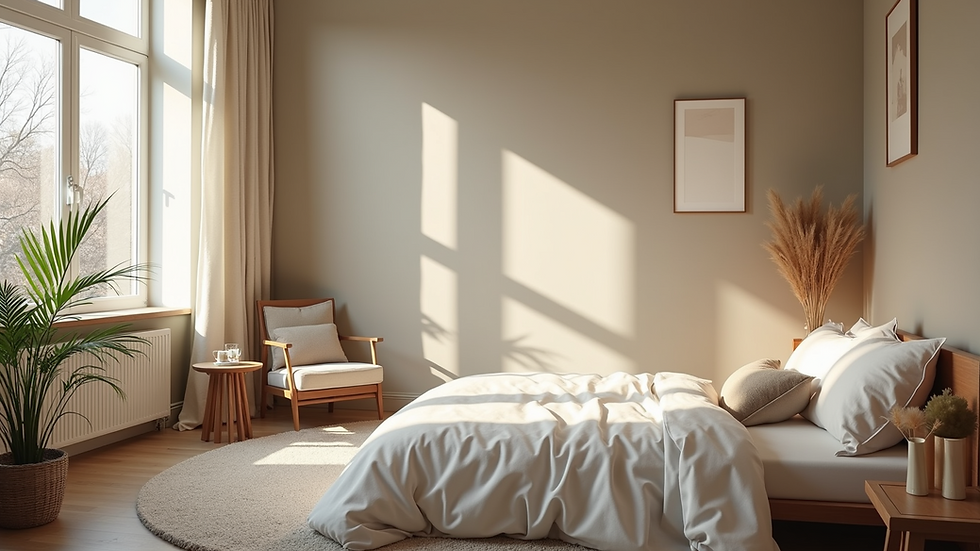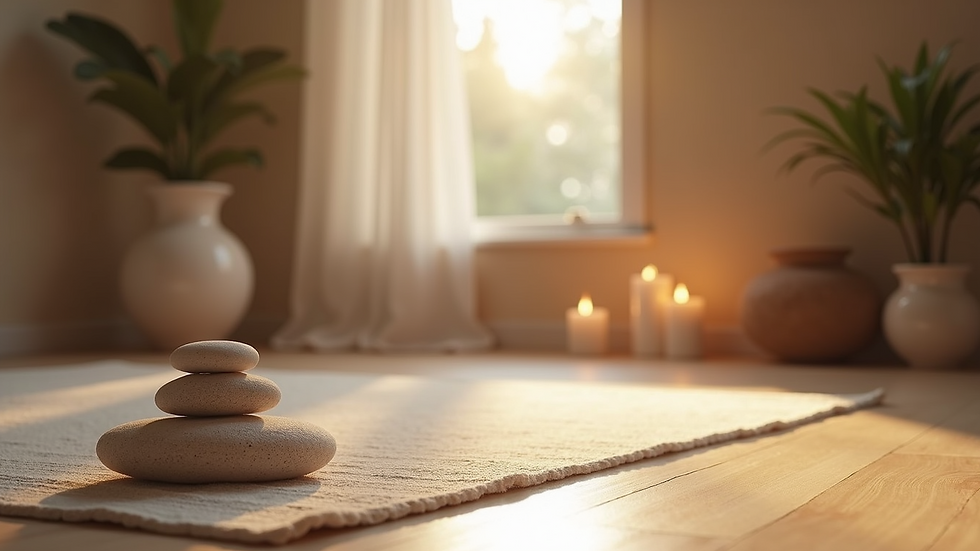Unlock the Secrets to Blissful Sleep and Banish Insomnia Forever!
- Kim Hellinghausen
- Jun 16
- 3 min read
Are you fed up with tossing and turning every night? Does the clock taunt you as sleep slips away? You’re not alone! Sleep disturbances affect millions globally. Understanding the root causes is the first step toward achieving that peaceful night’s rest you crave. In this blog post, we will explore how to achieve blissful sleep and tackle insomnia effectively. Get ready to transform your nighttime routine with practical strategies, tips, and insights for a rejuvenating sleep experience.
Understanding Sleep Issues
Sleep disturbances can include a range of problems, such as difficulty falling asleep, waking up too early, or frequently experiencing restless nights. Insomnia is among the most common issues, affecting about 30% of adults at some point in their lives. This can impact your mood, energy levels, and overall health. Research indicates that chronic sleep deprivation increases the risk of serious health issues, including heart disease, type 2 diabetes, and depression.
Identifying the potential sources of your sleeplessness is key. Factors can vary widely, including lifestyle choices, environmental conditions, and psychological stressors.
Factors Affecting Sleep Quality
Lifestyle Choices
Poor lifestyle habits can significantly hinder your sleep quality. Excessive caffeine intake, irregular sleep schedules, and a lack of physical activity are major culprits. For instance, studies show that consuming caffeine six hours before bedtime can reduce your sleep by more than an hour.
To improve your sleep, establish healthier habits such as:
Consistent Sleep Schedule: Aim to go to bed and wake up at the same time every day.
Mindful Eating: Avoid heavy meals close to bedtime. The National Sleep Foundation recommends having your last meal at least 2-3 hours before sleep.

Environmental Conditions
Your sleep environment also strongly influences your restfulness. Factors such as light exposure, noise levels, and room temperature are vital. A cluttered bedroom can add mental stress, making it harder to relax.
Creating a calming environment involves:
Controlling Light: Use blackout curtains to eliminate light exposure.
Optimizing Temperature: Aim for a room temperature between 60 and 67 degrees Fahrenheit for the best sleep.
Reducing Noise: Consider using white noise machines or earplugs to quiet any disruptive sounds.
Psychological Stressors
Mental health plays a crucial role in your ability to sleep. Stress, anxiety, and depression can make it challenging to relax at bedtime. If your mind races when you lay down, it may cause prolonged sleeplessness.
Incorporating relaxation practices can make a big difference:
Mindfulness and Meditation: Spending just 10 minutes on mindfulness meditation can improve sleep quality.
Deep Breathing Exercises: These can help calm your mind and prepare you for rest.

Essential Tips for Better Sleep
Develop a Consistent Sleep Routine
A consistent sleep schedule is essential for regulating your body’s internal clock. Aim to go to bed and wake up at the same time every day—even on weekends. This routine signals your body when it’s time to sleep, helping you fall asleep faster and wake up refreshed.
Create a Sleep-Inducing Environment
Design a bedroom that encourages restful sleep. Keep it dark, quiet, and cool. Investing in blackout curtains, a comfortable mattress, and supportive pillows can dramatically enhance your rest. In fact, many people find that they sleep better with a quality mattress and appropriate bedding.
Limit Screen Time Before Bed
The blue light from devices such as smartphones and televisions can disrupt your sleep. Aim to disconnect from screens at least one hour before bedtime. Instead, consider reading a physical book or listening to calming music to help you wind down.
Incorporate Relaxation Techniques
Building relaxation methods into your evening routine can signal your body that it's time to sleep. Practices like yoga, meditation, or soaking in a warm bath can help. Even gentle stretching can relieve tension, allowing your mind to relax.
When to Seek Professional Help
If your sleep issues persist despite trying these strategies, consider consulting a healthcare professional. Chronic insomnia may require an evaluation to check for underlying conditions like sleep apnea or other health problems.
A sleep specialist can offer tailored advice and treatment options suited to your situation, ensuring you receive effective support in overcoming sleep issues.
Restful Nights Await
Eliminate sleepless nights with these practical strategies! By understanding the various factors that affect sleep quality and implementing effective techniques into your nightly routine, you can achieve the peaceful sleep you’ve long desired.
Remember, the journey to better sleep takes time—patience is essential! Don’t hesitate to seek professional help if necessary, as your health is important. Here’s to restful nights, energized mornings, and waking up refreshed and ready to tackle the day!
Take control of your sleep today and discover the transformative power of a good night's rest. Your path to blissful sleep starts here!




Comments